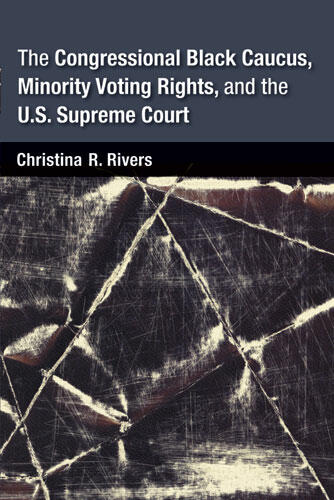The Congressional Black Caucus, Minority Voting Rights, and the U.S. Supreme Court
The U.S. Supreme Court and the Congressional Black Caucus disagree over how best to protect minority voting rights
Description
Both the U.S. Supreme Court and the Congressional Black Caucus (CBC) claim to advocate minority political interests, yet they disagree over the intent and scope of the Voting Rights Act (VRA), as well as the interpretation of the equal protection clause of the 14th Amendment. Whereas the Court promotes color-blind policies, the CBC advocates race-based remedies. Setting this debate in the context of the history of black political thought, Rivers examines a series of high-profile districting cases, from Rodgers v. Lodge (1982) through NAMUDNO v. Holder (2009). She evaluates the competing approaches to racial equality and concludes, surprisingly, that an originalist, race-conscious interpretation of the 14th Amendment, along with a revised states' rights position regarding electoral districting, may better serve minority political interests.
Christina R. Rivers is Associate Professor of Political Science at DePaul University.
Reviews
"Rivers explores the clash between the Congressional Black Caucus's race-conscious approach and the Supreme Court's color blind perspective on the role of race in redistricting, representation, and the law. ... Graduate seminars on racial politics, election law, or African American political thought would benefit from this book. Scholars who study these topics, in addition to voting rights, redistricting, and the Congressional Black Caucus, should also read this compelling and well-written book."
- David Canon
—American Review of Politics
"Christina R. Rivers’ timely account of the influence of the Congressional Black Caucus (CBC) on minority voting rights in the U.S. contains valuable insight into the historical and political role of race in the Supreme Court’s voting rights decisions."
- Victoria Rickard
—APSA Legislative Studies Section

